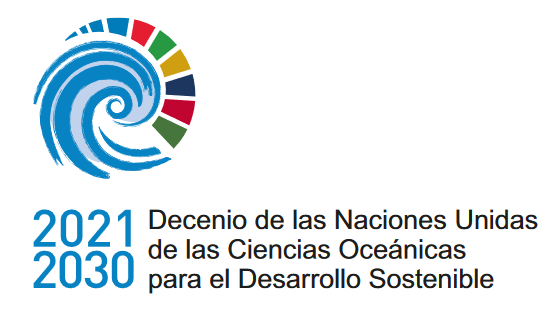Vulnerabilidad al cambio climático, adaptación y servicios ecosistémicos en diferentes pesquerías y acuiculturas en Asia: una revisión
English
DOI:
https://doi.org/10.47193/mafis.3822025010101Palabras clave:
Revisión sistemática de literatura, PRISMA, manejo pesquero, seguridad alimentariaResumen
Esta revisión tuvo como objetivo discutir la vulnerabilidad y los impactos del cambio climático en las pesquerías tropicales en Asia mediante una revisión sistemática de la literatura. El estudio aplicó los elementos del ítems Preferidos para Revisiones Sistemáticas y Metaanálisis (PRISMA) para evaluar la literatura entre 1990 y 2020. Los resultados mostraron agrupaciones de textos, palabras clave y títulos según términos de búsqueda como cambio climático, pesca y adaptación. Los enlaces con puntajes altos revelaron las agrupaciones: 1) cambio climático y seguridad alimentaria, 2) biodiversidad y protección del medio ambiente, 3) conservación de recursos, 4) impactos del cambio climático en Asia, 5) pesca. Los resúmenes y títulos produjeron agrupaciones sobre: 1) medios de vida y seguridad alimentaria, 2) captura pesquera, 3) enfoques de las partes interesadas, 4) servicios ecosistémicos. Si bien el cambio climático dominó los estudios de vulnerabilidad y adaptación, es solo uno de los muchos factores de estrés que afectan a la pesca y la acuicultura. Se sugiere la adaptación como una solución para reducir la vulnerabilidad y aumentar la resiliencia en las comunidades pesqueras. Sin embargo, nuestros hallazgos indican que los factores sociales y económicos que contribuyen a la vulnerabilidad inducida por el clima aún están relativamente desatendidos. Mejorar la biodiversidad y la protección del medio ambiente puede conducir a un entorno más productivo y con mayor seguridad alimentaria para los agricultores y pescadores. Las intervenciones deben centrarse en la adaptación, y el establecimiento de una “cogestión pesquera adaptativa” basada en la ciencia es crucial para involucrar a las comunidades pesqueras y abordar sus vulnerabilidades y aspiraciones más amplias.
Descargas
Métricas
Citas
Adger WN. 2006. Vulnerability. Global Environ Change. 16 (3): 268-281. DOI: https://doi.org/10.1016/j.gloenvcha.2006.02.006
Barange M, Bahri T, Beveridge MC, Cochrane KL, Funge-Smith S, Poulain F. 2018. Impacts of climate change on fisheries and aquaculture: synthesis of current knowledge, adaptation and mitigation options. FAO Fish Aquaculture Tech Pap. 627. 628 p.
Barratt C, Allison EH. 2014. Vulnerable people, vulnerable resources? Exploring the relationship between people’s vulnerability and the sustainability of community-managed natural resources. Develop Stud Res. 1 (1): 16-27. DOI: https://doi.org/10.1080/21665095.2014.904079
Bennett NJ, Dearden P, Peredo AM. 2015. Vulnerability to multiple stressors in coastal communities: a study of the Andaman Coast of Thailand. Clim Dev. 7 (2): 124-141. DOI: https://doi.org/10.1080/17565529.2014.886993
Bourgeois N, Cottrell M, Lamassé S, Olteanu M. 2015. Search for meaning through the study of co-occurrences in texts. In: Rojas I, Joya G, Catala A, editors. Advances in computational Intelligence. IWANN 2015. Lecture Notes in Computer Science. Part 2. Vol. 9095. Cham: Springer. p. 578-591. DOI: https://doi.org/10.1007/978-3-319-19222-2_48
Brulé T, Renán X, Colás-Marrufo T. 2022. Potential impact of climate change on fish reproductive phenology: a case study in gonochoric and hermaphrodite commercially important species from the southern Gulf of Mexico. Fishes. 7 (4): 156. DOI: https://doi.org/10.3390/fishes7040156
Chakraborty S, Avtar R, Raj R, Huynh Vuong Thu Minh. 2019. Village level provisioning ecosystem services and their values to local communities in the peri-urban areas of Manila, The Philippines. Land. 8 (12): 177. DOI: https://doi.org/10.3390/land8120177 DOI: https://doi.org/10.3390/land8120177
Chhetri N. 2021. Vulnerabilities of coastal and inland fisheries to climate change: assessing adaptation policy to improve resiliency of social ecological system of Bangladesh. In: Ullah R, Sharma S, Inoue M, Asghar S, Shivakoti G, editors. Natural resource governance in Asia. Elsevier. p. 255-270. DOI: https://doi.org/10.1016/B978-0-323-85729-1.00018-9 DOI: https://doi.org/10.1016/B978-0-323-85729-1.00018-9
Coleman JL, Ascher JS, Bickford D, Buchori D, Cabanban A, Chisholm RA, Chong KY, Christie P, Clements GR, De la Cruz T. 2019. Top 100 research questions for biodiversity conservation in Southeast Asia. Biol Conserv. 234: 211-220. DOI: https://doi.org/10.1016/j.biocon.2019.03.028
Crawford B, Kasmidi M, Korompis F, Pollnac RB. 2006. Factors influencing progress in establishing community-based marine protected areas in Indonesia. Coast Manage. 34 (1): 39-64. DOI: https://doi.org/10.1080/08920750500379300
D’agata S, Maina JM. 2022. Climate change reduces the conservation benefits of tropical coastal ecosystems. One Earth. 5 (11): 1228-1238. DOI: https://doi.org/10.1016/j.oneear.2022.10.012
Edwards DM, Collins TM, Goto R. 2016. An arts-led dialogue to elicit shared, plural and cultural values of ecosystems. Ecosys Serv. 21: 319-328. DOI: https://doi.org/10.1016/j.ecoser.2016.09.018
Fang J, Liu W, Yang S, Brown S, Nicholls RJ, Hinkel J, Shi X, Shi P. 2017. Spatial-temporal changes of coastal and marine disasters risks and impacts in Mainland China. Ocean Coast Manage. 139: 125-140. DOI: https://doi.org/10.1016/j.ocecoaman.2017.02.003
Feist SE, Hoque MA, Islam MA, Ahmed KM, Fowler M. 2021. Recent trends in inland water level change in coastal Bangladesh-implications of sea level rise in low-lying deltas. Global Planet Change. 206: 103639. DOI: https://doi.org/10.1016/j.gloplacha.2021.103639
Glaser M, Baitoningsih W, Ferse SC, Neil M, Deswandi R. 2010. Whose sustainability? Top-down participation and emergent rules in marine protected area management in Indonesia. Mar Policy. 34 (6): 1215-1225. DOI: https://doi.org/10.1016/j.marpol.2010.04.006
Gong X, Sui L, Morton J, Brennan MA, Brennan CS. 2021. Investigation of nutritional and functional effects of rice bran protein hydrolysates by using Preferred Reporting Items for Systematic Reviews and Meta-Analysis (PRISMA) guidelines: a review. Trends Food Sci Technol. 110: 798-811. DOI: https://doi.org/10.1016/j.tifs.2021.01.089
Grubb M, Okereke C, Arima J, Bosetti V, Chen Y, Edmonds J, Gupta S, Koberle A, Malik A, Sulistiawati L, et al. 2022. Introduction and framing. In: Shukla PR, Skea J, Slade R, Al Khourdajie A, van Diemen R, McCollum D, Pathak M, Some S, Vyas P, Fradera R, et al., editors. Climate change 2022. Mitigation of climate change. Working Group III Contribution to the Sixth Assessment Report of the Intergovernmental Panel on Climate Change. IPCC Intergovernmental Panel on Climate Change. p. 151-213. DOI: https://doi.org/10.1017/9781009157926.003 DOI: https://doi.org/10.1017/9781009157926.003
Hamid AIA, Din AHM, Hwang C, Khalid NF, Tugi A, Omar KM. 2018. Contemporary sea level rise rates around Malaysia: altimeter data optimization for assessing coastal impact. J Asian Earth Sci. 166: 247-259. DOI: https://doi.org/10.1016/j.jseaes.2018.07.034
Hjerpe M, Glaas E. 2012. Evolving local climate adaptation strategies: incorporating influences of socio-economic stress. Mitigation Adap Strat Global Change. 17: 471-486. DOI: https://doi.org/10.1007/s11027-011-9337-3
[HLPE] High Level Panel of Experts. 2020. Food security and nutrition: building a global narrative towards 2030. Report 15. Rome: HLPE and CFS Committee on World Food Security. 91 p.
Hoang HD, Momtaz S, Schreider M. 2020. Assessing the vulnerability of small-scale fishery communities in the estuarine areas of Central Vietnam in the context of increasing climate risks. Ocean Coast Manage. 196: 105302. DOI: https://doi.org/10.1016/j.ocecoaman.2020.105302
Hossain AA, Mahdi GMA, Pramanik MMH. 2023. Understanding the challenges of the hilsa fishing community in Bangladesh: the river of life. J Sustainability Environ Manage. 2 (2): 115-125. DOI: https://doi.org/10.3126/josem.v2i2.55204
[IPCC] Intergovernmental Panel on Climate Change. 2022. Summary for policymakers: In: Pörtner H-O, Roberts DC, Poloczanska ES, Mintenbeck K, Tignor M, Alegría A, Craig M, Langsdorf S, Löschke S, Möller V, et al., editors. Climate change 2022. Impacts, adaptation and vulnerability. Working Group II Contribution to the Sixth Assessment Report of the Intergovernmental Panel on Climate Change. IPCC. p. 3-33. DOI: https://doi.org/10.1017/9781009325844.001 DOI: https://doi.org/10.1017/9781009325844.001
Islam MM, Nahiduzzaman M, Wahab MA. 2020. Fisheries co-management in hilsa shad sanctuaries of Bangladesh: early experiences and implementation challenges. Mar Policy. 117: 103955. DOI: https://doi.org/10.1016/j.marpol.2020.103955
Jacinto MR, Songcuan AJG, Yip GV, Santos MD. 2015. Development and application of the fisheries vulnerability assessment tool (Fish Vool) to tuna and sardine sectors in the Philippines. Fish Res. 161: 174-181. DOI: https://doi.org/10.1016/j.fishres.2014.07.007 DOI: https://doi.org/10.1016/j.fishres.2014.07.007
Joakim EP, Mortsch L, Oulahen G. 2015. Using vulnerability and resilience concepts to advance climate change adaptation. Environ Hazards. 14 (2): 137-155. DOI: https://doi.org/10.1080/17477891.2014.1003777
Kelly PM, Lien TV, Hien HM, Ninh NH, Adger WN. 2012. Managing environmental change in Vietnam. In: Adger WN, Kelly PM, Ninh NH, editors. Living with environmental change. London: Routledge. p. 35-58.
Khan AS, Kumar MS, Chella RS. 2022. Risk communication and capacity-building: a case study on framing CBA strategies of artisanal fishing communities to sea-level rise using BASIEC. Clim Serv. 26: 100299. DOI: https://doi.org/10.1016/j.cliser.2022.100299
Kiss R, Deák B, Török P, Tóthmérész B, Valkó O. 2018. Grassland seed bank and community resilience in a changing climate. Restor Ecol. 26: 141-150. DOI: https://doi.org/10.1111/rec.12694
Kolding J, Béné C, Bavinck M. 2014. Small‐scale fisheries: importance, vulnerability and deficient knowledge. In: Garcia S, Rice J, Charles A, editors. Governance for marine fisheries and biodiversity conservation. Interaction and coevolution. Wiley-Blackwell. p. 317-331. DOI: https://doi.org/10.1002/9781118392607.ch22
Lavides MN, Molina EPV, de la Rosa GE, Mill AC, Rushton SP, Stead SM, Polunin NVC. 2016. Patterns of Coral-Reef Finfish Species Disappearances Inferred from Fishers’ Knowledge in Global Epicentre of Marine Shorefish Diversity. PLoS ONE. 11 (5): e0155752. DOI: https://doi.org/10.1371/journal.pone.0155752
Liu J-M, Borazon EQ, Muñoz KE. 2021. Critical problems associated with climate change: a systematic review and meta-analysis of Philippine fisheries research. Environ Sci Pollut Res. 28 (36): 49425-49433. DOI: https://doi.org/10.1007/s11356-021-15712-6
Macusi ED, Camaso KL, Barboza A, Macusi ES. 2021a. Perceived vulnerability and climate change impacts on small-scale fisheries in Davao gulf, Philippines. Front Mar Sci. 8: 773. DOI: https://doi.org/10.3389/fmars.2021.597385 DOI: https://doi.org/10.3389/fmars.2021.597385
Macusi ED, Diampon DO, Macusi ES. 2023. Understanding vulnerability and building resilience in small-scale fisheries: the case of Davao Gulf, Philippines. Clim Policy. DOI: https://doi.org/10.1080/14693062.2023.2261889 DOI: https://doi.org/10.1080/14693062.2023.2261889
Macusi ED, Estor DEP, Borazon EQ, Clapano MB, Santos MD. 2022. Environmental and socioeconomic impacts of shrimp farming in the Philippines: a critical analysis using PRISMA. Sustainability. 14 (5): 2977. DOI: https://doi.org/10.3390/su14052977
Macusi ED, Geronimo RC, Santos MD. 2021b. Vulnerability drivers for small pelagics and milkfish aquaculture value chain determined through online participatory approach. Mar Policy. 133: 104710. DOI: https://doi.org/10.1016/j.marpol.2021.104710
Markphol A, Kittitornkool J, Armitage D, Chotikarn P. 2021. An integrative approach to planning for community-based adaptation to sea-level rise in Thailand. Ocean Coast Manage. 212: 105846. DOI: https://doi.org/10.1016/j.ocecoaman.2021.105846
McClanahan T, Allison EH, Cinner JE. 2015. Managing fisheries for human and food security. Fish Fish. 16 (1): 78-103. DOI: https://doi.org/10.1111/faf.12045
Meilianda E, Pradhan B, Comfort LK, Alfian D, Juanda R, Syahreza S, Munadi K. 2019. Assessment of post-tsunami disaster land use/land cover change and potential impact of future sea-level rise to low-lying coastal areas: a case study of Banda Aceh coast of Indonesia. Int J Disaster Risk Red. 41: 101292. DOI: https://doi.org/10.1016/j.ijdrr.2019.101292
Moher D, Liberati A, Tetzlaff J, Altman DG. 2009. Preferred reporting items for systematic reviews and meta-analyses: the PRISMA statement. PLoS Med. 6 (7): e1000097. DOI: https://doi.org/10.1371/journal.pmed.1000097
Mozumder M. 2020. Socio-ecological resilience of a small-scale hilsa shad (Tenualosa ilisha) fishery in the gangetic river systems of Bangladesh [PhD dissertation]. University of Helsinki.
Muringai RT, Mafongoya P, Lottering RT, Mugandani R, Naidoo D. 2021. Unlocking the potential of fish to improve food and nutrition security in sub-Saharan Africa. Sustainability. 14 (1): 318. DOI: https://doi.org/10.3390/su14010318
Nabuurs G-J, Marbet R, Abu Hatab A, Bustamante M, Clark H, Havlik P, House J, Mbow C, Ninan KN, Popp A, et al. 2022. Agriculture, forestry and other land uses (AFOLU). In: Shukla PR, Skea J, Slade R, Al Khourdajie A, van Diemen R, McCollum D, Pathak M, Some S, Vyas P, Fradera R, editors. Climate change 2022. Mitigation of climate change. Working Group III Contribution of to the Sixth Assessment Report of the Intergovernmental Panel on Climate Change. IPCC Intergovernmental Panel on Climate Change. p. 747-860. DOI: https://doi.org/10.1017/9781009157926.009 DOI: https://doi.org/10.1017/9781009157926.009
Narendra BH, Siregar CA, Dharmawan IWS, Sukmana A, Pratiwi, Pramono IB, Basuki TM, Nugroho HYSH, Supangat AB, Yuwati TW, et al. 2021. A review on sustainability of watershed management in Indonesia. Sustainability. 13 (19): 11125. DOI: https://doi.org/10.3390/su131911125
Nguyen-Huy T, Kath J, Nagler T, Khaung Y, Aung TSS, Mushtaq S, Marcussen T, Stone R. 2022. A satellite-based Standardized Antecedent Precipitation Index (SAPI) for mapping extreme rainfall risk in Myanmar. Remote Sens Appl Soc Environ. 26: 100733. DOI: https://doi.org/10.1016/j.rsase.2022.100733
Nong D. 2019. Potential economic impacts of global wild catch fishery decline in Southeast Asia and South America. Econ Anal Pol. 62: 213-226. DOI: https://doi.org/10.1016/j.eap.2019.04.004
O’Brien K, Leichenko R, Kelkar U, Venema H, Aandahl G, Tompkins H, Javed A, Bhadwal S, Barg S, Nygaard L. 2004. Mapping vulnerability to multiple stressors: climate change and globalization in India. Global Environ Change. 14 (4): 303-313. DOI: https://doi.org/10.1016/j.gloenvcha.2004.01.001
Ojeda-Ruiz MÁ, Petatán-Ramírez D, Guerrero-Izquierdo T, Salvadeo C. 2022. Rapid vulnerability assessment of Pacific sardine (Sardinops sagax) fisheries facing climate change in Mexico. Prog Oceanogr. 206: 102826. DOI: https://doi.org/10.1016/j.pocean.2022.102826
Pachauri RK, Allen MR, Barros VR, Broome J, Cramer W, Christ R, Church JA, Clarke L, Dahe Q, Dasgupta P. 2014. In: Core Writing Team, Pachauri RK, Meyer LA, editors. Climate change 2014: synthesis report. Contribution of Working Groups I, II and III to the fifth assessment report of the Intergovernmental Panel on Climate Change. Geneva: IPCC Intergovernmental Panel on Climate Change. 151 p.
Pagulayan III SV, Macusi ES, Nallos IM. 2024. Vulnerability, adaptation and resilience to climate change of upland farming communities in Davao Oriental, Philippines. Davao Research Journal. 15 (1): 104-115. DOI: https://doi.org/10.59120/drj.v15i1.191 DOI: https://doi.org/10.59120/drj.v15i1.191
Raj R, Tripathi JK, Kumar P, Singh SK, Phartiyal B, Sharma A, Sridhar A, Chamyal LS. 2021. Palaeoclimatic and sea-level fluctuations from the last deglaciation to late Holocene from western India: Evidence from multiproxy studies. J Asian Earth Sciences. 214: 104777. DOI: https://doi.org/10.1016/j.jseaes.2021.104777
Rambaldi G, Bugna S, Geiger M. 2001. Review of the protected area system of Vietnam. ASEAN Biodiversity. 1 (4): 43-51.
Ribot J. 2013. Vulnerability does not just fall from the sky: toward multi-scale pro-poor climate policy. In: Redclift MR, Grasso M, editors. Handbook on climate change and human security. Cheltanham: Edward Elgar. p. 164-199. DOI: https://doi.org/10.4337/9780857939111.00016
Roy B, Penha-Lopes GP, Uddin MS, Kabir MH, Lourenço TC, Torrejano A. 2022. Sea level rise induced impacts on coastal areas of Bangladesh and local-led community-based adaptation. Int J Disaster Risk Red. 73: 102905. DOI: https://doi.org/10.1016/j.ijdrr.2022.102905
Santos MD, Dickson JO, Velasco PL. 2011. Mitigating the impacts of climate change: Philippine fisheries in focus. Fish for the People. 9 (2): 101-110.
Sebesvari Z, Le TTH, Renaud FG. 2011. Climate change adaptation and agrichemicals in the Mekong Delta, Vietnam. In: Stewart MA, Coclanis PA, editors. Environmental Change and Agricultural Sustainability in the Mekong Delta. Advances in global change research. 45. Dordrecht: Springer. p. 219-239. DOI: https://doi.org/10.1007/978-94-007-0934-8_13
Sen S, Nielsen JR. 1996. Fisheries co-management: a comparative analysis. Mar Policy. 20 (5): 405-418. DOI: https://doi.org/10.1016/0308-597X(96)00028-0
Snilstveit B, Oliver S, Vojtkova M. 2012. Narrative approaches to systematic review and synthesis of evidence for international development policy and practice. J Develop Effect. 4 (3): 409-429. DOI: https://doi.org/10.1080/19439342.2012.710641
Spaninks F, Beukering PV. 1997. Economic valuation of mangrove ecosystems: potential and limitations. London: International Institute for Environment and Development. 53 p.
Stephenson RL, Paul S, Wiber M, Angel E, Benson AJ, Charles A, Chouinard O, Clemens M, Edwards D, Foley P, et al. 2018. Evaluating and implementing social-ecological systems: a comprehensive approach to sustainable fisheries. Fish Fish. 19 (5): 853-873. DOI: https://doi.org/10.1111/faf.12296
Suresh KP, Nayak A, Dhanze H, Bhavya AP, Shivamallu C, Achar RR, Silina E, Stupin V, Barman NN, Kumar SK, et al. 2022. Prevalence of Japanese encephalitis (JE) virus in mosquitoes and animals of the Asian continent: a systematic review and meta-analysis. J Infect Public Health. 15 (9): 942-949. DOI: https://doi.org/10.1016/j.jiph.2022.07.010
van Eck NJ, Waltman L. 2010. Software survey: VOSviewer, a computer program for bibliometric mapping. Scientometrics. 84 (2): 523-538. DOI: https://doi.org/10.1007/s11192-009-0146-3
Velmurugan A, Roy SD, Dagar JC, Swarnam TP, Jaisankar I. 2016. Innovative technologies to sustain saline island agriculture in the scenario of climate change: a case study from Andaman Islands, India. In: Dagar J, Sharma P, Sharma D, Singh A, editors. Innovative saline agriculture. New Delhi: Springer, p. 387-417. DOI: https://doi.org/10.1007/978-81-322-2770-0_18
Veron JE, DeVantier LM, Turak E, Green AL, Kininmonth S, Stafford-Smith M, Peterson N. 2011. The coral triangle. In: Dubinsky Z, Stambler N, editors. Coral reefs: an ecosystem in transition. Dordrecht: Springer. p. 47-55. DOI: https://doi.org/10.1007/978-94-007-0114-4_5
Villasante S, Macho G, Silva MRO, Lopes PFM, Pita P, Simón A, Balsa JCM, Olabarria C, Vázquez E Calvo N. 2022. Resilience and social adaptation to climate change impacts in small-scale fisheries. Front Mar Sci. 9: 802762. DOI: https://doi.org/10.3389/fmars.2022.802762 DOI: https://doi.org/10.3389/fmars.2022.802762
Weatherdon LV, Magnan AK, Rogers AD, Sumaila UR, Cheung WW. 2016. Observed and projected impacts of climate change on marine fisheries, aquaculture, coastal tourism, and human health: an update. Front Mar Sci. 3: 48. DOI: https://doi.org/10.3389/fmars.2016.00048
Weeks J, Harrison B. 2020. Review of sea level rise science, information and services in Pakistan. Technical Report. Exeter: Met Office. 47 p.
White AT, Eisma-Osorio RL, Green SJ. 2005. Integrated coastal management and marine protected areas: Complementarity in the Philippines. Ocean Coast Manage. 48 (11-12): 948-971. DOI: https://doi.org/10.1016/j.ocecoaman.2005.03.006
White AT, Aliño PM, Meneses ABT. 2006. Creating and managing marine protected areas in the Philippines. Cebu City: Fisheries Improved for Sustainable Harvest Project, Coastal Conservation and Education Foundation Inc. Marine Science Institute, University of the Philippines.
Worm B, Lotze HK. 2021. Marine biodiversity and climate change. In: Letcher T, editor. Climate change: observed impacts on Planet Earth. Elsevier. p. 445-464. DOI: https://doi.org/10.1016/B978-0-12-821575-3.00021-9
Zhang L, Li Yang, Chapman CA, Peres CA, Lee TM, Fan P-F. 2023. Growing disparity in global conservation research capacity and its impact on biodiversity conservation. One Earth. 6: 1-11. DOI: https://doi.org/10.1016/j.oneear.2023.01.003
Ziervogel G, Ericksen P. 2010. Adapting climate change to sustain food security. WIREs Clim Change. 1 (4): 525-540. DOI: https://doi.org/10.1002/wcc.56
Descargas
Publicado
Cómo citar
Número
Sección
Licencia
Derechos de autor 2024 Ahasan Habib, Elaine Q. Borazon, Ivy M. Nallos, Edison Macusi

Esta obra está bajo una licencia internacional Creative Commons Atribución-NoComercial-CompartirIgual 4.0.
Los autores de los artículos publicados en Marine and Fishery Sciences conservan los derechos de autor de sus artículos, a excepción de las imágenes de terceros y otros materiales añadidos por Marine and Fishery Sciences, que están sujetos a los derechos de autor de sus respectivos propietarios. Por lo tanto, los autores son libres de difundir y volver a publicar sus artículos, sujeto a los requisitos de los propietarios de derechos de autor de terceros y sujeto a que la publicación original sea completamente citada. Los visitantes también pueden descargar y reenviar artículos sujetos a los requisitos de citas. La capacidad de copiar, descargar, reenviar o distribuir cualquier material siempre está sujeta a los avisos de derechos de autor que se muestran. Los avisos de copyright deben mostrarse de manera prominente y no pueden borrarse, eliminarse u ocultarse, total o parcialmente. El autoalmacenamiento en servidores y repositorios de preimpresión está permitido para todas las versiones.
Esta revista ofrece a los autores una política de acceso abierto. Los usuarios pueden leer, descargar, copiar, distribuir, imprimir, buscar o vincular los textos completos de los artículos, o usarlos para cualquier otro propósito legal dentro de la licencia Creative Commons 4.0 (BY-NC-SA), sin solicitar permiso previo del editor o del autor. Esto está de acuerdo con la definición BOAI de acceso abierto.




























